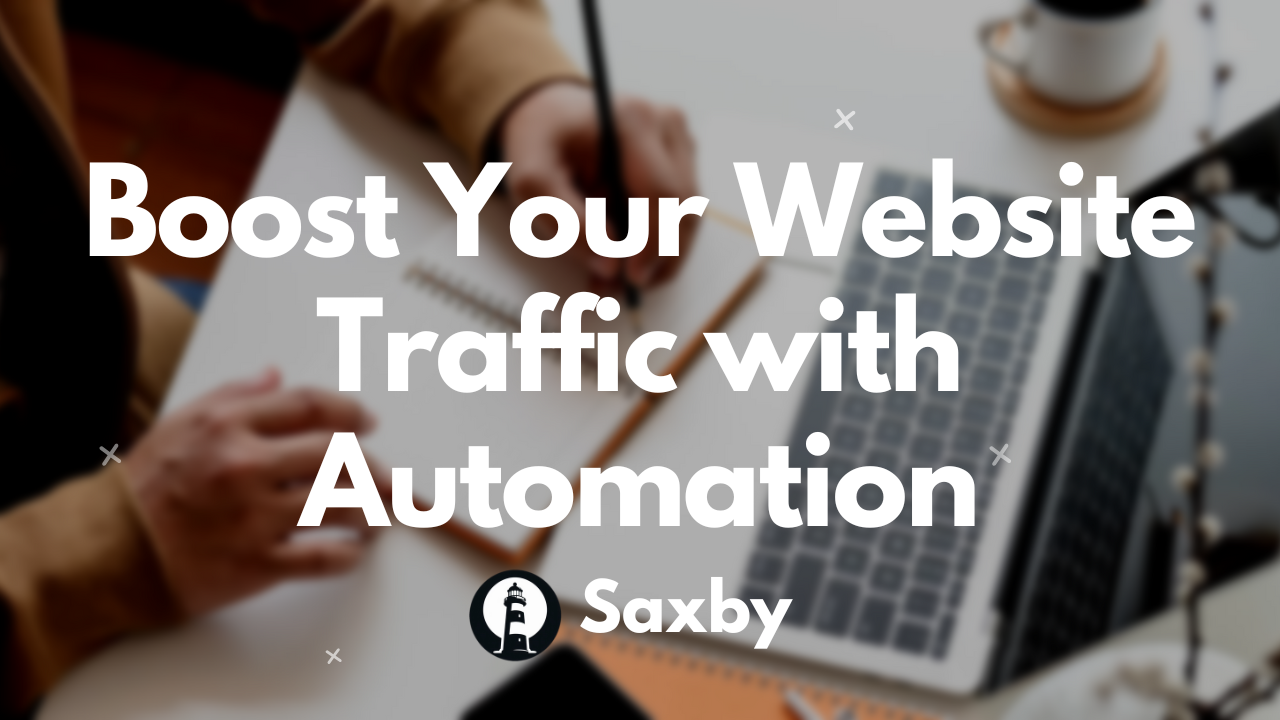Having a robust SEO strategy is crucial for any business looking to increase website traffic and generate quality leads. With the rapid advancements in technology, particularly in AI and automation, integrating automation tools into your strategy can streamline processes, optimize content, and enhance visibility. Let’s explore how you can harness these tools to drive substantial growth in your online presence.
The Evolving Landscape of SEO
SEO has dramatically evolved over the years. Initially, it was all about keyword stuffing and backlinks. However, search engines have become smarter, focusing on user experience, relevance, and quality content. The introduction of AI in SEO has further transformed how we approach optimization. Tools now offer insights that were previously unimaginable, allowing businesses to adapt quickly to changes in search algorithms.
Recent studies show that AI-driven SEO strategies can increase organic traffic by up to 50% in the first year. Businesses that fail to adapt risk being left behind as competitors leverage these advancements to capture a wider audience. For example, Google’s recent updates emphasize the importance of user-first content and technical SEO, areas where automation can significantly assist.
Understanding SEO Automation
SEO automation involves using technology to perform repetitive SEO tasks without manual intervention. This approach not only saves time but also ensures consistency and accuracy in SEO practices. Automation tools can handle various tasks, from keyword research to content optimization, allowing you to focus on strategic decision-making.
| Task | Manual Effort | Automated Solution |
|---|---|---|
| Keyword Research | Hours of analysis | Minutes with AI tools |
| Content Optimization | Detailed manual tweaks | Automated recommendations |
| Technical SEO Audits | Complex site reviews | Automated audits with reports |
Key Areas Where Automation Excels in SEO
Keyword Research and Optimization
Effective keyword research is foundational to any SEO strategy. Automation tools can quickly analyze search volumes, competition levels, and keyword trends. For instance, Saxby uses AI to suggest long-tail keywords that are more likely to convert, ensuring your content targets the right audience.
Recent data suggests that 70% of search queries are long-tail keywords, highlighting the importance of targeting these specific phrases. By using automation, you can uncover these opportunities faster and more efficiently than manual methods.
Technical SEO and Site Audits
Technical SEO ensures your site is crawlable and indexable by search engines. Automated tools like Netpeak Spider and Merkle SEO Tools can perform comprehensive site audits, identifying issues like broken links and crawl errors. These insights help you maintain a healthy site structure, crucial for ranking well in search results.
According to a recent survey, 30% of SEO professionals cite technical SEO as the most challenging aspect of their job. Automation tools alleviate this burden by providing detailed reports and actionable recommendations.
Automating On-Page and Off-Page SEO
On-Page SEO Automation
On-page SEO involves optimizing individual pages to rank higher and earn more relevant traffic. Automation tools like SEO PowerSuite can analyze your site’s technical settings and content, offering suggestions to improve elements like meta tags, descriptions, and internal linking.
For example, an e-commerce site implemented on-page SEO automation and saw a 25% increase in organic traffic within three months. This improvement was attributed to optimized product descriptions and enhanced user experience.
Off-Page SEO Automation
Off-page SEO focuses on building your site’s reputation and authority. Automated tools like SERPWoo help track keyword positions and manage your online reputation. By monitoring your backlink profile and social signals, you can gain insights into how your site is perceived across the web.
Research indicates that sites with a strong off-page SEO strategy see a 40% higher conversion rate than those without. Automation ensures you remain proactive in building and maintaining your site’s authority.
Link Building and Outreach with Automation
Link building is a critical component of SEO, often requiring significant time and resources. Automation tools like Respona streamline outreach efforts by identifying potential link opportunities and managing relationships. AI can also personalize email outreach, increasing the likelihood of securing high-quality backlinks.
In a recent case study, a company using automated outreach tools saw a 30% increase in successful link acquisitions compared to manual efforts. This success was attributed to targeted campaigns and data-driven insights provided by automation.
Performance Tracking and Analytics
Monitoring your SEO performance is essential to understand what’s working and where improvements are needed. Automation tools provide real-time tracking of key metrics such as rankings, traffic, and site health. This data helps you make informed decisions and adjust your strategy as needed.
For instance, businesses using automated analytics tools report a 20% improvement in their SEO effectiveness, thanks to timely insights and the ability to react swiftly to changes.
Balancing Automation with Human Expertise
While automation offers numerous benefits, human expertise remains crucial. SEO is not just about data; it’s about understanding user intent and crafting content that resonates. Automation can handle the technical aspects, but human creativity and insight are needed to create compelling content.
For example, an AI tool might suggest topics based on search trends, but a skilled content creator can craft engaging articles that truly connect with readers. This balance ensures your SEO strategy is both efficient and effective.
Future Trends in SEO Automation
AI Overviews and Search Generative Experience
With Google’s introduction of AI overviews, SEO strategies must evolve. These summaries can affect click-through rates, making it essential to optimize content for inclusion in AI-generated content. Ensuring your content is comprehensive and relevant is more important than ever.
E-E-A-T and Author Entities
The latest algorithm updates emphasize the importance of first-hand experience and recognized authors. Content that demonstrates expertise and authority is more likely to rank well. Automation tools can help identify content gaps and suggest improvements, but the human touch is needed to ensure authenticity.
Case Studies and Real-World Examples
Real-world examples demonstrate the power of SEO automation. A marketing agency using Saxby saw a 50% increase in organic traffic within 6 months by automating keyword research and content optimization. These tools provided insights that allowed for more targeted content strategies.
However, challenges remain, such as ensuring content quality and maintaining a personal touch in automated outreach. Learning from these experiences can help you navigate the complexities of SEO automation effectively.
SEO Strategy in a Digital World
SEO automation tools have significantly impacted the digital landscape, offering efficiencies and insights that were previously unattainable. While the benefits are clear, success requires a balance of automation and human expertise. Staying updated with trends and leveraging the right tools will help you maintain a competitive edge in this ever-evolving field. As you strategize for the future, consider how automation can enhance your efforts and drive growth in your online presence.
Need some help? Try out Saxby to research keywords, create high quality SEO-optimized content and publish with just a few clicks.


Leave a Reply